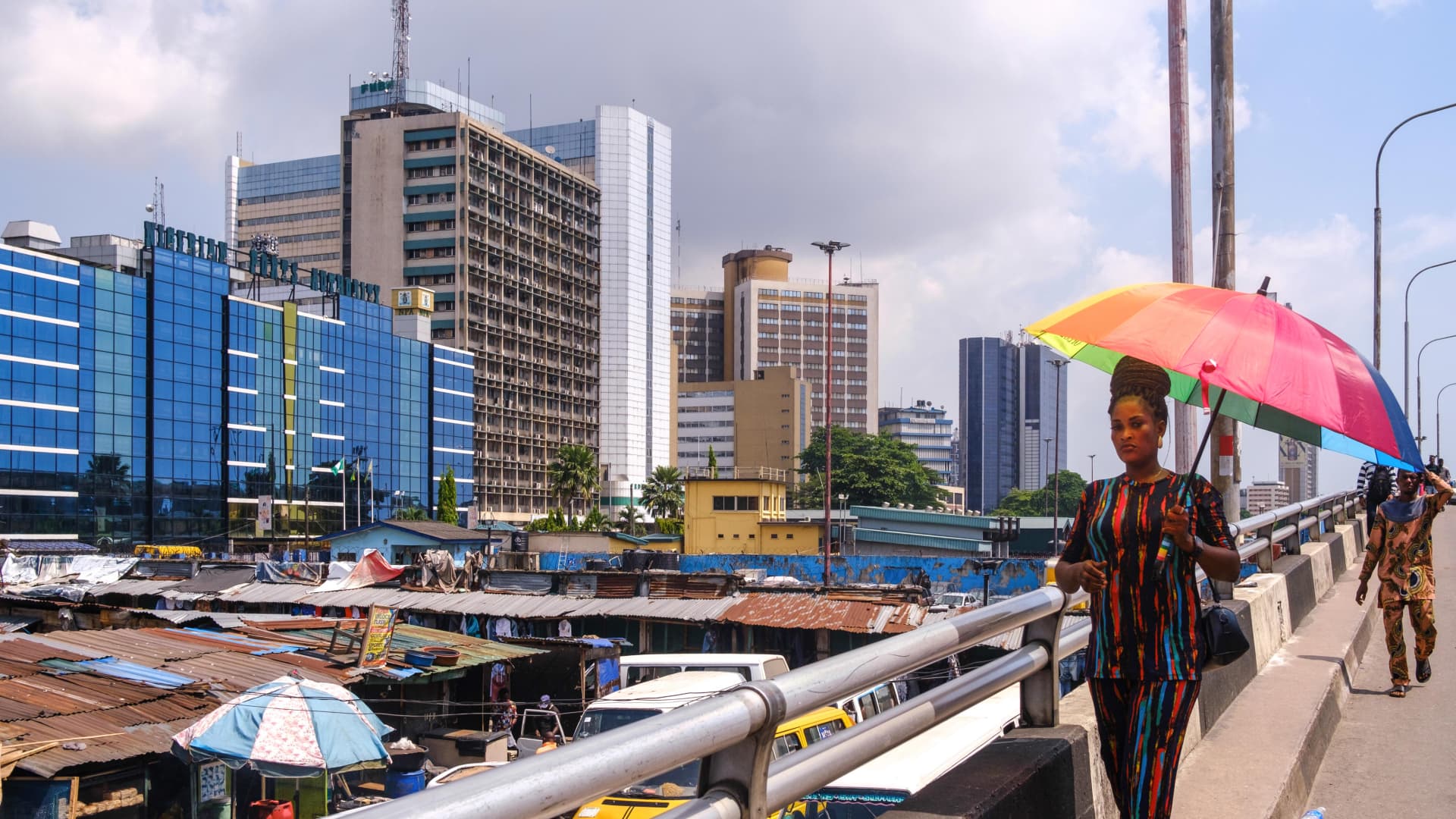The Central Bank of Nigeria on Tuesday hiked its key interest rate by 200 basis points, as Africa’s largest economy looks to recover from a historic currency crisis and soaring inflation.
The CBN announced that its main monetary policy rate would rise to 24.75% from 22.75%, in its second consecutive hike after February’s 400 basis point increase.
Governor Olayemi Cardoso told a press conference that policymakers believed they need to continue tightening in order to tame runaway inflation, according to Reuters.
David Omojomolo, Africa economist at Capital Economics, said the latest move was “further evidence that officials are fighting aggressively to tackle the inflation problem and restore its damaged credibility,” despite being smaller than the previous increment.
“That may be a sign that some MPC members are concerned about the impact on growth from tighter monetary policy,” he suggested in a note on Tuesday.
“That said, the fact that officials delivered a larger-than-expected hike suggests that the fight against inflation, which stood at 31.7% y/y in February and is set to continue rising over the coming months, is taking precedence.”
Minutes published last week from the central bank’s February meeting had showed policymakers arguing the hawkish case for aggressive interest rate hikes to tame sky-high inflation, which came in at an annual 31.7% in February, up from 29.9% in January and the highest rate since April 1996.
Capital Economics expects further tightening, given Governor Cardoso’s need to bring down the curtain on the country’s inflation and currency crises.
“We have pencilled in further 100bp hikes at each of the next meetings in May and July before the hiking cycle is brought to a close. Policy will then probably be left on hold for the rest of the year,” he added.
Currency crisis
Nigeria’s naira currency has plunged by around 70% against the U.S. dollar over the course of a year, hitting an all-time low of around 1,600 naira to the dollar in late February.
However, it has since recovered some ground, trading around 1,400 naira as of Tuesday morning after the CBN announced that a $7 billion backlog of imports had finally been cleared.
The central bank’s February minutes revealed that members of the Monetary Policy Committee at the time held differing views on the drivers of inflation and naira weakness, which influenced their votes.
Though the MPC hiked rates by 400 basis points to 22.75% in February, there were arguments for hikes as small as 100 basis points and as large as 450 from committee members. Governor Cardoso had advocated for a 425 basis point move, Omojomolo noted ahead of Tuesday’s decision.
“Doves warned about the risk of hiking rates too aggressively and the structural nature of inflation, while hawks emphasised the need to restore the CBN’s credibility and move real interest rates into positive territory to further support the naira via extra foreign investment,” he added.
